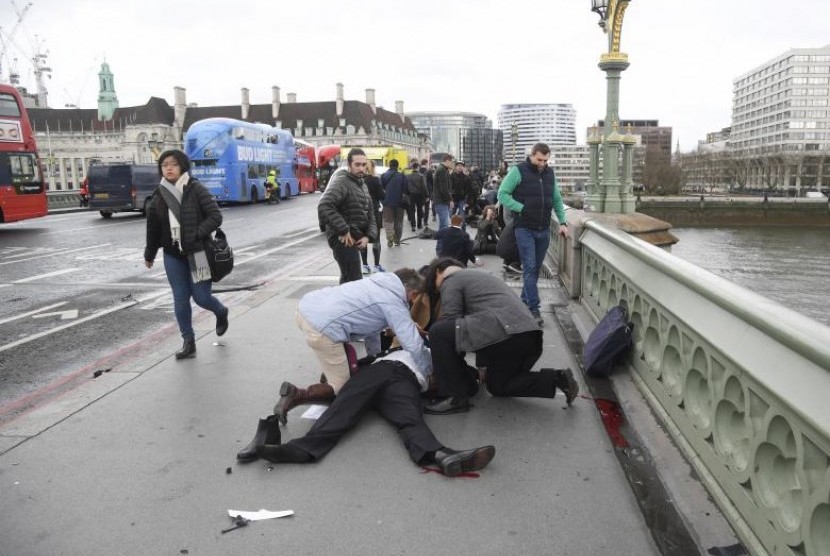REPUBLIKA.CO.ID, JAKARTA – People in London, England were shocked by an attack near the House of Parliament. A police were stabbed when the attacker tried to enter the parliament building. He also crashed his car to some walkers. Dozens of people injured and five were died.
An analyst on terrorism from Indonesian University (UI) Ridlwan Habib said the attack duplicates the other attack in Nice (France) and Berlin (Germany). The attacker crashed a vehicle to get as many as victims.
He was not sure ISIS was responsible for the attack. “The pattern of the attack was in accordance to ISIS’instruction, but it was better to know the investigation result before saying ISIS was responsible for it,” said him on Thursday (March 23).
Also read: London terror attack" href="http://en.republika.co.id/berita/en/national-politics/17/03/23/on9grl414-indonesia-condemns-london-terror-attack" target="_blank">Indonesia condemns London terror attack
Ridlwan argued British involvement in a coalition to fight ISIS in Mosul, Irak might be a reason. The country also dealt with a spread of radicalism in prison. The released ex-convict kept moving in London.
Some hours before the attack, Abu Izzudin or Trevor Brooks were still in a prison in London. “He might be a prisoner or ex-prisoner who ever conducted communication in prison. The problem of radical prison in London was similar to Indonesia,” said Ridlwan.
The Research Director of Indonesia Terrorism Monitoring (ITM) said the prisoners of terrorism and radicalism were not change even after they were jailed. Ironically their radicalism was stronger and they had additional technique of terror during the imprisonment.
Ridlwan said the dilemma was arosed in London. Both countries had not found an ideal system to change the prisoners of terrorism’s perspection.


